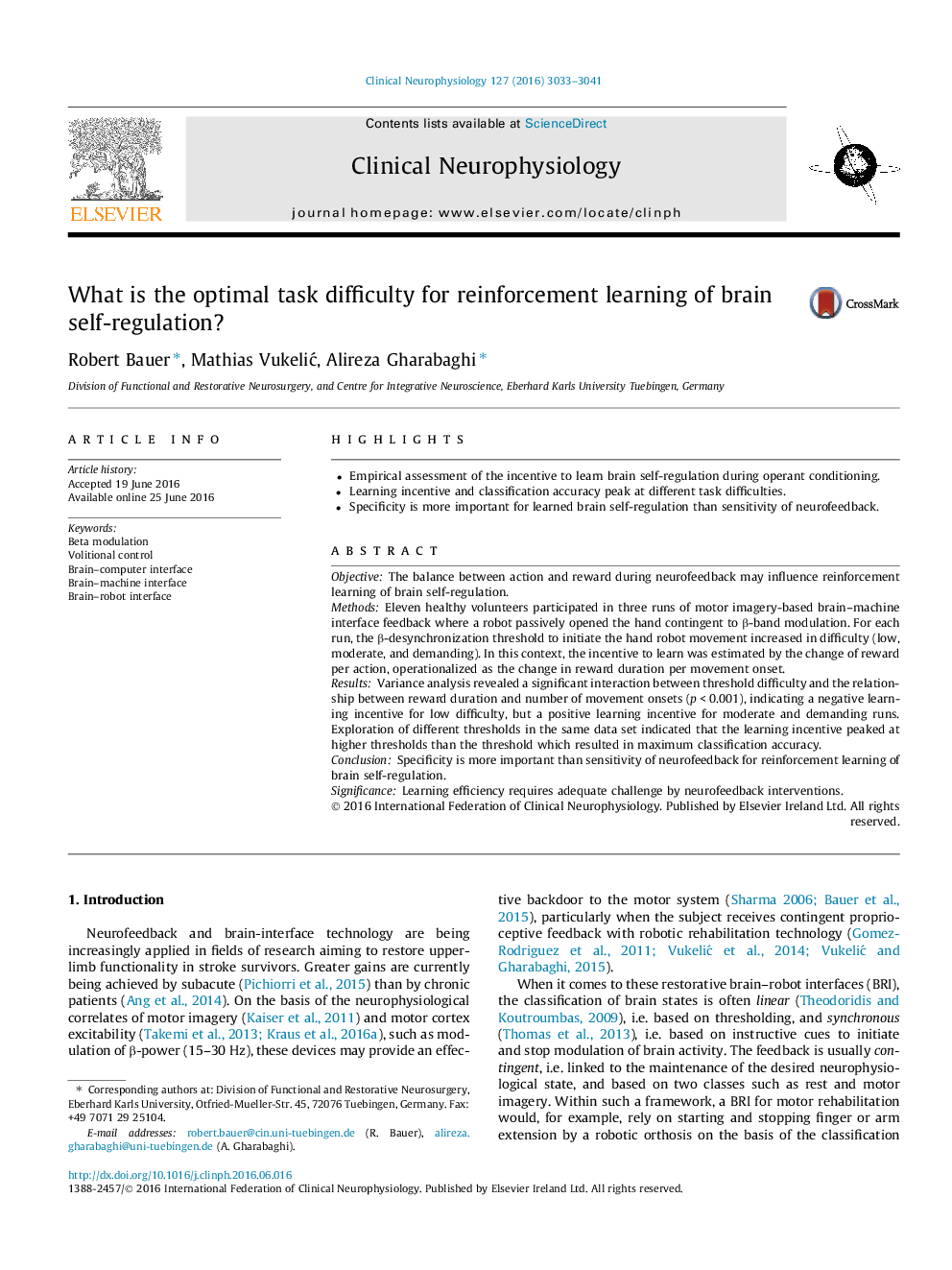| Article ID | Journal | Published Year | Pages | File Type |
|---|---|---|---|---|
| 6007285 | Clinical Neurophysiology | 2016 | 9 Pages |
â¢Empirical assessment of the incentive to learn brain self-regulation during operant conditioning.â¢Learning incentive and classification accuracy peak at different task difficulties.â¢Specificity is more important for learned brain self-regulation than sensitivity of neurofeedback.
ObjectiveThe balance between action and reward during neurofeedback may influence reinforcement learning of brain self-regulation.MethodsEleven healthy volunteers participated in three runs of motor imagery-based brain-machine interface feedback where a robot passively opened the hand contingent to β-band modulation. For each run, the β-desynchronization threshold to initiate the hand robot movement increased in difficulty (low, moderate, and demanding). In this context, the incentive to learn was estimated by the change of reward per action, operationalized as the change in reward duration per movement onset.ResultsVariance analysis revealed a significant interaction between threshold difficulty and the relationship between reward duration and number of movement onsets (p < 0.001), indicating a negative learning incentive for low difficulty, but a positive learning incentive for moderate and demanding runs. Exploration of different thresholds in the same data set indicated that the learning incentive peaked at higher thresholds than the threshold which resulted in maximum classification accuracy.ConclusionSpecificity is more important than sensitivity of neurofeedback for reinforcement learning of brain self-regulation.SignificanceLearning efficiency requires adequate challenge by neurofeedback interventions.
